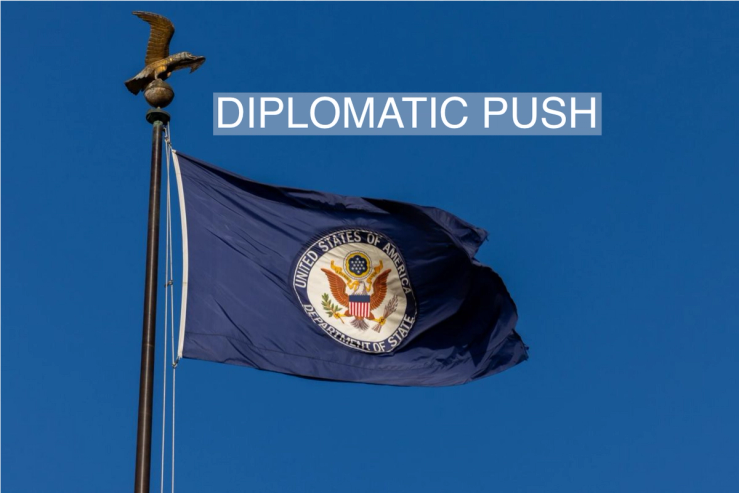The Author
Brett Holmgren is the Assistant Secretary for the State Department’s Bureau of Intelligence and Research, one of the 18 components of the U.S. intelligence community.
The Argument
Unless Congress acts, at the end of this month, a critical provision of law – Section 702 of the Foreign Intelligence Act (FISA) – will expire. Others in the Administration have warned about the grave implications that failing to reauthorize this provision, or reauthorizing it with restrictions that diminish its efficacy, would have on the government’s ability to counter national security threats – from terrorism and cyberattacks to espionage and the flow of illicit drugs across our border. Though perhaps less evident, the loss of Section 702 would have an equally devastating impact on the ability of U.S. diplomats to advance and promote American interests and values in the world. These implications take on greater significance at a time when China and Russia are seeking to upend U.S. global leadership and create an alternative, autocratic future for humanity.
For context, Section 702 permits the U.S. government to collect the communications of non-U.S. citizens located overseas according to defined foreign intelligence requirements, and expressly prohibits targeting the communications of U.S. persons or anyone physically located inside the United States.
As the head of the State Department’s Bureau of Intelligence and Research (INR), I see up close the essential role that intelligence made possible by Section 702 plays in supporting and enabling U.S. diplomacy. Whether this involves providing the Secretary of State with assessments on Russia, China, Iran, North Korea, or terrorism; declassifying intelligence to share with allies and partners to build coalitions; holding nations accountable for their obligations under international treaties or conventions; or giving officials an edge in international engagements, U.S. diplomats rely on 702 information to advance American interests.
Simply put, Section 702 plays an outsized, behind-the-scenes role in support of U.S. diplomacy. For example, so far this year, 25% of all requests by State Department officials and diplomats to downgrade or declassify intelligence to share with foreign partners included 702-enabled information. Moreover, more than 200 INR assessments published between January and October this year—several assessments per week—included 702-derived reporting. Many of those products were shared with the President, the Secretary of State, and other senior U.S. policymakers. As one manager bluntly stated, “INR would not be able to fulfill its mandate to use intelligence to empower diplomacy without 702 reporting.”
A future in which the State Department could not rely on Section 702 would severely inhibit a range of important U.S. diplomatic functions. Consider these realities:
Without 702 reporting, U.S. diplomats would have less compelling evidence to call out foreign nations for egregious human rights abuses or expose their efforts to track and harass dissidents abroad, including in the United States.
Without 702 reporting, the ability of State Department officials to verify nations’ compliance with international arms control treaties and other obligations would be impeded.
Without 702 reporting, the State Department and other parts of the U.S. government would have less information available to identify, evaluate, and expose Russian atrocities in Ukraine.
Without 702 reporting, U.S. diplomats would have less intelligence to share with foreign partners to enable them to crack down on efforts by arms dealers and others to evade sanctions against nations like Russia.
Without 702 reporting, U.S. diplomats would have been unable to share timely information with a foreign partner to prevent the proliferation of technical materiel to a government tied to conflict-linked abuses and human rights violations.
Finally, when it comes to immigration and screening, State Department officials would be unable to use 702-enabled information to help vet non-U.S. persons for visa applications or other benefits under U.S. immigration laws to ensure we are not letting terrorists into our country.
These examples only begin to scratch the surface of the ways in which the loss or lapse of Section 702 would undermine U.S. diplomatic activities.
Some have questioned whether existing oversight and privacy safeguards already built into the Section 702 program are strong enough. These are legitimate and important issues to address. To that end, the Administration, working with Congress, has put forward bold proposals that would strengthen privacy and civil liberties protections while fully preserving the efficacy of the program.
Every day, U.S. diplomats around the world work tirelessly to advance the interests and security of the American people. But make no mistake: a future without Section 702, or with a much-diminished 702 program, will have significant costs for American diplomacy. And in an era with intensifying competition with authoritarian powers and increasing global challenges, America’s diplomats will need every tool at their disposal – especially Section 702.


